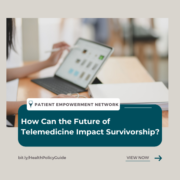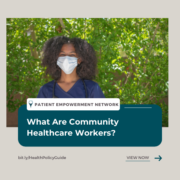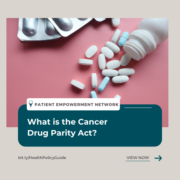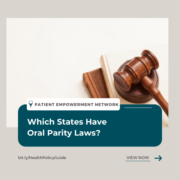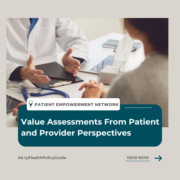How Can the Future of Telemedicine Impact Survivorship?
How Can the Future of Telemedicine Impact Survivorship? from Patient Empowerment Network on Vimeo.
Joe Kvedar, MD from the American Telemedicine Association explains how the future of telehealth technologies can impact the survivorship of patients with chronic illnesses.
See More from the Health Policy Activity Guide
Transcript
Mary Leer:
How might the future of telemedicine impact survivorship, especially for people living with cancer or anyone with a chronic condition?
Joe Kvedar:
Well, some of us feel that telehealth is ideally suited to care for folks with chronic conditions. think cancer is a special case, but one of the fundamental things about telehealth, if you do it right, and I’m not just talking about video now, but audio, what we call asynchronous, which is more like a text exchange, remote patient monitoring, where you’re monitoring people in the home with various technologies, etcetera. If you use the right tool to solve the problem, what you get is more continuous care. So, for our cancer patients, that is more touches to the system, more inputs that they can give, more fine-tuning of how they feel, what their regimen is, how comfortable they feel when they’re on treatment, all can be done better because you’re obviating the need to physically get up, travel somewhere, set in a waiting room, you’re doing it much more rapid fire. And for chronic conditions, I think it’s just a match being in heaven because once you find out, for instance, you have, I would say type 2 diabetes, then it’s not about the diagnosis it’s about management and management again, is lots of little feedback with lots of conversations, you measure your glucose three times a day, that data goes into a cloud and then software will tell you maybe you should eat a little bit less of this or that, these days, we have tools that match a smart glucometer to an insulin pump to create almost what’s like an artificial pancreas, those are all a form of telehealth, and it enables us to manage those conditions much more effectively.
Again, conditions like high blood pressure, congestive heart failure, and diabetes are all perfect candidates to be managed in this, what I call little bite way of doing it, as opposed to once every three months, whether you need it or not.

